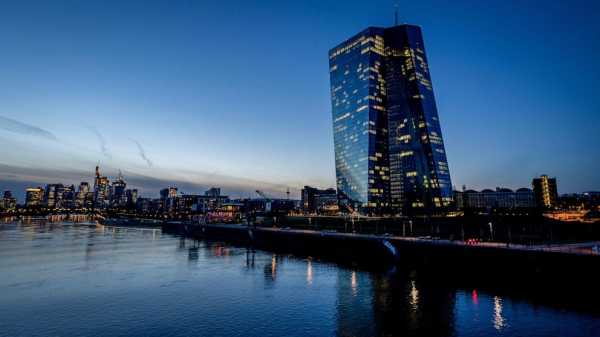
LONDON — Inflation in the 20 countries that use the euro currency slowed to the lowest level in a year as energy prices dropped, but food costs were still on the rise, keeping pressure on the European Central Bank to hike interest rates further.
Consumer prices in the eurozone jumped 6.9% in March from a year earlier, down from 8.5% in February, according to data released Friday by the European Union’s statistics agency, Eurostat.
Eurozone inflation has been easing since peaking at 10.6% in October, and the latest figure is slightly below what most economists had expected. It reflects significant drops in some of the continent's bigger economies like Spain and the Netherlands, where inflation halved in March.
Economists looked beyond the headline number to focus on so-called core inflation, which increased to a record 5.7% from 5.6% the previous month. Core inflation, which excludes volatile food and energy prices, can give a better sense of whether inflation is becoming entrenched in the economy over the longer term.
"The potential for core inflation to remain stickier than hoped will be the main reason for the ECB to continue to hike in the near term," said Bert Colijn, ING Bank’s senior eurozone economist.
Bank President Christine Lagarde said Friday that core inflation is “significantly too high” and that the ECB “has more ground to cover” to get inflation back to its 2% goal.
Speaking to students in Florence, Italy, she reiterated that the central bank will rely on incoming data to make its future interest rate decisions and “will do whatever is necessary” to bring down price spikes, while noting that recent financial turmoil and geopolitical tensions have created uncertainty.
Central bankers' jobs have become more complex after the collapse of two U.S. banks, including Silicon Valley Bank, were sparked in part by rapid interest rate rises aimed at taming inflation. The ensuing global financial upheaval forced the takeover of troubled Swiss lender Credit Suisse by rival UBS and raised concerns about the fallout in already-weak major economies.
Despite that, the ECB, U.S. Federal Reserve and Bank of England all raised interest rates this month as they focus on combating price spikes. Inflation stood at 6% in the U.S. and 10.4% in the United Kingdom in February.
In the eurozone, prices for food, alcohol and tobacco rose by a painful 15.4%, faster than the previous month's 15%, in a sign that European consumers are still getting squeezed.
Energy prices, however, fell 0.9% — an abrupt change of direction after rising at double-digit rates over the past year. The plunge was expected after the costs of oil and natural gas surged in March 2022, when Russia invaded Ukraine.
The war notably pushed up prices for natural gas used to heat homes and generate electricity last year as Russia largely cut off supplies to Europe, fueling overall inflation. The latest reading indicates that a mild winter and efforts to store and source gas from non-Russian sources have paid off.
Prices for goods dipped to 6.6% from 6.8% the previous month, while services climbed 5%, up from 4.8%.
Sourse: abcnews.go.com






